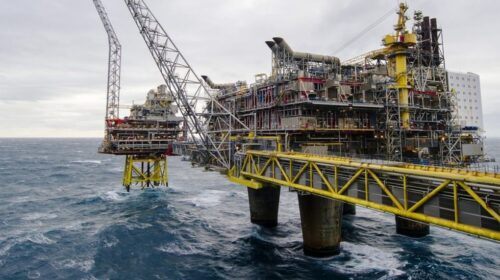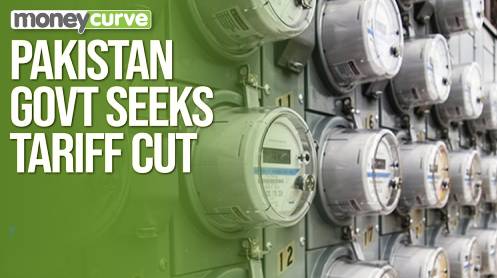THE oil and gas (O&G) sector is expected to run into twin headwinds this year, characterised by the volatility in the energy market and the slowdown of the global economy.
One bright spot for Malaysia is Petroleum Nasional Bhd (Petronas) and the overall positive sentiment towards
its activities for 2023-2025, as well as the national oil giant’s third-quarter net profit which almost doubled to RM30.8 billion from the RM16.3 billion reported in 2021.
In its Activity Outlook report for 2023-2025, Petronas high- lighted that uncertainty in the energy market is still expected to continue, hence, industry players need to be more agile.
Asia School of Business assistant professor of business and society Dr Renato Lima de Oliveira concurred and said it will be a year of uncertainty for the O&G sector, mainly for three reasons — the looming recession, China’s recovery and Russia’s behaviour.
De Oliveira, who teaches courses on energy markets and directs the research at the Centre for Technology, Strategy and Sustainability, highlighted that the O&G demand closely follows economic growth.
“But how fast will the world economy decelerate in 2023 after so many central banks across the world raised interest rates to combat inflation?
“If we have a general economic slowdown, commodity prices will likely suffer, including oil,” he told The Malaysian Reserve.
He added that the second unknown factor is how fast will China’s economy rebound after its zero-Covid policy pivot, as the Asian country is the biggest oil importer in the world.
De Oliveira noted that China’s dramatic policy shift after generalised protests is definitely welcomed for the rebound of economic activities.
“However, the question remains whether they have prepared the health system for a surge (in Covid cases) after the lifting of restrictions. Have they offered the best vaccines available to their population?
“In that regard, the US approved a very significant package to boost renewables in the form of the Inflation Reduction Act, signed by US President Joe Biden on Aug 16, 2022, allocating close to US$400 billion (RM1.77 trillion) in favour of energy efficiency and investments in renewables.
“Europe has been a leader in climate change policies and cutting dependency from Russia’s fossil fuels is now an economic and military objective.
“How strong and effective will Russia’s reaction be to the US$60 oil price caps? Will their president Vladimir Putin come up with any new surprise for 2023 or withdraw?
“Regardless, in the long term, the war only emphasised the need to accelerate the energy transition.”
Commenting further, de Oliveira said the price of oil is determined by supply and demand, each with its own dynamics.
He noted that a global recession will lower the demand, but China coming out of prolonged lockdowns may compensate for part of the demand loss from other markets.
According to him, on the supply side, 40% of oil comes from OPEC countries. So, if the cartel is able to tighten its grip on the supply, it will be able to manage its share of volume that comes to the market and, thus, indirectly set oil prices.
“This is because investments in new oil fields had gone down (in the last) few years. As the world embraces energy transition, it is unlikely we will have a supply glut coming from significant new volumes found outside OPEC, (like what) happened in earlier decades.
“So, it seems plausible that oil will trade between US$60 and US$100 in the short run, a comfortable band for most producers,” he added.
De Oliveira said a higher oil price will further slow down the global economic growth, adding to fears of stagflation. He noted that a price lower than US$60 will start putting fiscal pressures on many oil-exporting countries’ fiscal revenues, including Malaysia.
Not New to Disruptions
Meanwhile, Deloitte opined that the crude oil and natural gas industry is not new to supply disruptions and price volatility.
In its latest 2023 O&G Industry Outlook report, the firm said over the past seven years, the industry has seen several peaks and troughs, from above US$100 per barrel in 2014 to -US$37 per barrel in 2020.
“But the situation is unique today.
“A confluence of several economic, geopolitical, trade, policy and financial factors have exacerbated the issue of underinvestment and triggered a readjustment in the broader energy market.
“All three components of a balanced energy equation — energy security, supply diversification and low-carbon transition — are under severe pressure or facing a ‘trilemma’ of concerns,” it said.
Additionally, it noted that the O&G industry has followed the investor’s mandate for measured investment and financial discipline, but this approach has reduced capital expenditure (capex) and contributed to the tight market seen in 2022.
Deloitte said the disruption of energy trade between Europe and Russia has also driven global gas markets to new highs — reaching six to ten times of the US Henry Hub prices.
Furthermore, it said the shortage of agricultural products for renewable fuels and supply chain challenges for low-carbon technologies have impacted the progress of energy transition.
“Although the immediate impact of this imbalance is high energy prices and record cashflows for O&G companies, how and where the industry will invest in the future remains uncertain.
“The industry’s investment trajectory in 2023 will likely be determined by many of the actions and decisions being taken today, namely the balance that O&G producers strike between increasing investment and continuing capital discipline, the role of O&G companies in accelerating and securing the energy transition, the dynamics of natural gas demand and the resultant policy environment, the refining industry’s adaptation to the readjustment in energy markets and the trajectory for dealmaking amid the interplay of energy security and transition,” it noted.
According to Deloitte, the O&G industry likely enters 2023 with its healthiest balance sheet yet and with continued capital discipline.
It added that this could help companies overcome the energy underinvestment of recent years and help enable an accelerated energy transition.
It also highlighted that the results of Deloitte’s 2023 outlook survey shows that 93% of respondents remain “positive to cautiously positive” about the industry in the coming year.





